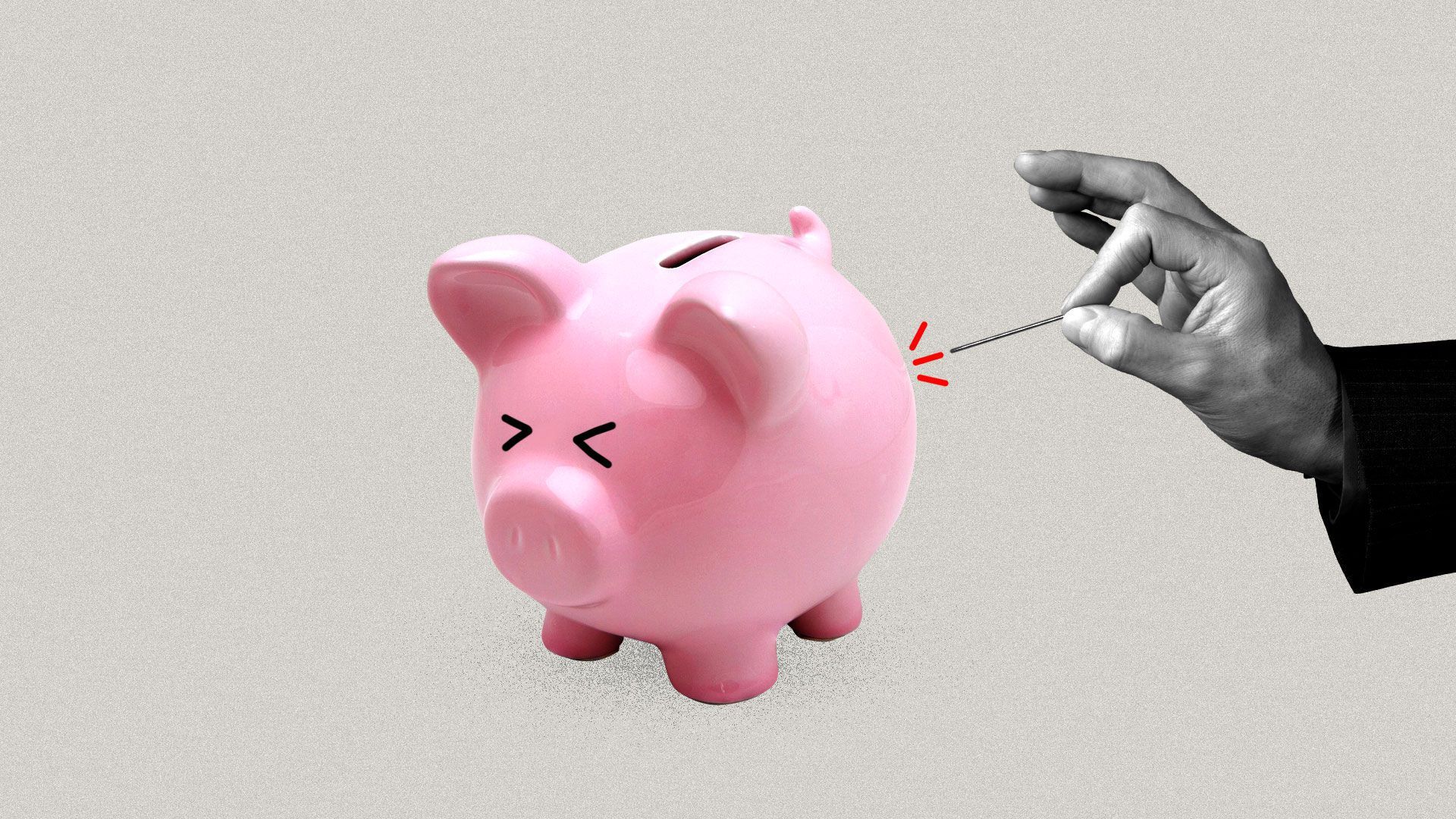Fed warns corporate debt binge will amplify economy's coronavirus downturn
Add Axios as your preferred source to
see more of our stories on Google.

Illustration: Lazaro Gamio/Axios
High levels of corporate debt are among the risks that could make the fallout from the coronavirus economic shock even worse, the Federal Reserve warned in its twice-yearly report released on Friday.
Why it matters: Low interest rates and a flourishing economy tamped down concerns about companies' rising debt levels. With the U.S. in the worst economic downturn since the Great Depression, the Fed says those debt loads could "amplify the adverse effects of the Covid-19 outbreak."
By the numbers: Billions of dollars worth of investment-grade ($170 billion) and lower-rated ($29 billion) non-financial corporate debt is due by year's end, the report notes.
- Fed actions have helped thaw debt markets. Still, the Fed worries tight financing conditions may limit businesses' ability to refinance that debt, which would "intensify the economic effects of the pandemic on these businesses’ employment and investment decisions."
Of note: There's been a frenzy of corporate debt offerings from cash-strapped companies since the Fed said it planned to help unfreeze the bond market in mid-March.
- "Economic activity is contracting sharply, and the associated reduction in earnings and increase in credit needed to bridge the downturn will expand the debt burden and default risk of a highly leveraged business sector," the Fed said.
What they're saying: The coronavirus was the most cited potential shock (80%) for the economy within the next 12-18 months for banks, investment firms, academic institutions and political consultancies surveyed by the Fed.
- The next most frequently cited potential shocks were: the effectiveness of the global policy response, followed by corporate debt or a credit cycle turn and the U.S. election.
The Fed also warned...
- U.S. banks could face “material losses” from households unable to repay debts in the midst of the coronavirus outbreak.
- There could be a significant hit to prices of stocks and other assets, "should the pandemic take an unexpected course, the economic fallout prove more adverse, or financial system strains reemerge."
- The Fed flagged elevated commercial real estate prices as particularly vulnerable. Disruptions in hospitality and retail sectors are "putting the ability of these sectors to make timely mortgage and rental payments into question."
The bottom line: The world's most powerful central banks already expect the economic damage from the pandemic to be deep and long-lasting, Axios' Dion Rabouin reports.
Go deeper: Central banks load up for a long war against coronavirus
